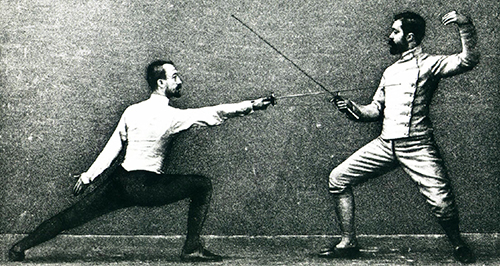We will have a few questions from Yoga Sutra 46.
Question to Osho – DOES A DISCIPLE STEAL SOMETHING FROM HIS MASTER?
Everything!
Because the truth cannot be taught, it has to be learned. The Master can only tempt you, make you more and more thirsty for it; but he cannot deliver it to you – it is not a thing. He cannot simply transfer it in your name – it is not a heritage. You will have to steal it. You will have to work hard in the dark night of the soul. You will have to find ways; how to steal it. The Master only tempts you; he simply provokes you. He shows that something is there, a treasure, and now you have to work hard. In fact, he will create all sorts of obstacles so that you cannot reach the treasure very easily.
Because if you reach the treasure very easily, you will not have grown; you will lose that treasure again. It will be a treasure in the hands of a child. The key will be lost, the treasure will be lost.
So not only do you have to steal, but the Master has to work in such a way that you become able to steal only when you are ready. He has to create many obstacles. He goes on hiding the treasure.
He will allow you only when you are ready. Just your greed or your desire is not enough, but your readiness, your preparedness; you have to earn it. And it is like stealing because the effort has to be made in the dark, and the effort has to be made very silently. And there are a thousand and one obstacles on the path, temptations to go away, temptations to get distracted. The help of the Master is really to make you more skillful, to give you the knack of how to feel whether the treasure exists here or not.
Living with the Master, surrounded by his climate, slowly, slowly, a certain awareness arises in you.
Your eyes become clear and you can see where the treasure is. And then, you work hard for it. The Master gives you a glimpse of the far-away peak of the Himalayas – snow-covered, shining in the sun – but it is far away and you will have to travel. It is going to be hard, it is going to be uphill. There is every possibility that you may get lost. There is every possibility that you may miss the goal, you may go astray. The closer you come to the peak, the possibility of missing becomes bigger and bigger, greater and greater – because the closer you come to the peak, the less you can see the peak. You have to move just by your own alertness. From far away you can see the peak; it is difficult to lose the direction. But when you have reached the mountains and you are moving upward, you cannot see the peak. You simply have to grope in darkness, so it is more like stealing. The Master is not going to give to you easily. It can be allowed very easily – the door can be opened right now – but you will not be able to see any treasure there because your eyes are not trained yet. And even if, just on trust, you believe that this is very, very valuable, you will lose your trust again and again.
Unless you feel and know that this is valuable, it is not going to be kept for long; you will throw it anywhere.
I have heard about a poor man, a beggar, who was coming with his donkey on the road. The donkey had a beautiful diamond just dangling on his neck. The beggar had found it somewhere and thought it looked beautiful, so he had made a little ornament for the donkey, a necklace. One jeweller saw it. He reached the poor man and asked, “How much will you take for this stone?” The poor man said, “Eight annas will do.” The jeweller became greedy. He said, “Eight annas? – For just this small stone? I can give you four annas.” But the poor man said, “For four annas why take it away from the donkey? Then I’m not going to sell.” The jeweller said that the beggar would sell, so he went a little far away. He would come back to persuade me. But by that time, another jeweller saw it. He was ready to give one thousand rupees, so the poor man sold immediately because the other was not even ready to give eight annas. And this jeweller looked almost mad; one thousand rupees he offered! – The first jeweller came back but the diamond was gone. He said to the poor man, “You are a fool! You have sold it for just one thousand rupees; it was worth almost one million RUPEES!” The beggar laughed, “I may be a fool – I am – but what about you? I did not know that it was a diamond, and you knew it and you would not take it even for eight ANNAS.”
You can get the diamond; it will be taken away from you. You cannot keep it for long. It will be stolen unless you yourself understand how valuable it is. So you have to grow.
The work of the Master is very paradoxical. The paradox is: he provokes you, he invites you, and goes on hiding the treasure. He has to do both simultaneously: he has to tempt you, seduce you, and yet, he is not to allow you an easy approach. Between these two very paradoxical efforts: provoking, continuously provoking….
I go on speaking every day; this is nothing but temptation, an invitation. But I will hide it to the last unless you have become capable of stealing. I am not going to give it; it cannot be given. You can only steal it. But you will become, by and by, a master thief. The temptation will make you. What will you do? I will tempt you and nothing will be given to you. What will you do? – You will start thinking of how to steal it.
Nothing happens before its right time; truth, at least, never happens before its right time. And if I try to give it to you, it will never reach you in the first place. Even if it reaches you, you will lose it again.
And… it will not be an act of compassion on my part if I give it to you. My compassion has to be hard. My compassion has to be so hard that you go on crying for it and I go on hiding it. On the one hand, I tempt you; on the other hand, I hide it. Once tempted, you will become, by and by, crazier and crazier. You will find ways; you have to find ways. Because only through finding, searching, seeking ways, inventing, innovating, enquiring new paths, getting out of the old patterns, finding new patterns, new disciplines, will you grow, will you become rich. In fact, the moment you have grown, suddenly the truth is there within you. One just has to recognize it, but that recognition comes the hard way. You will have to stake everything that you have: that is the meaning of stealing. It is not a business: it is not a bargain. It is like stealing.
Think of the thief: he stakes everything for something which is not known, which he doesn’t know whether it is really there or not. He stakes his property, he stakes his family, he stakes his own life. If he misses and something goes wrong, he may be in prison forever. He’s a gambler; very courageous. He’s not a businessman. He stakes everything for something which may be there or may not be there. The businessman has a dictum: he says, “Never lose your half bread in the hand for a whole bread in the future, in imagination. Never lose that which you have for that which you don’t have.” That is the dictum of the businessman, the businessman’s mind.
The thief follows another dictum totally: he says, “Put everything that you have at stake for something that you don’t have.” For his dream, he stakes the real. It is just a ‘perhaps’. He risks all his securities for something very insecure. That’s where courage is.
So rather than being a businessman, be a thief, be a gambler. Because the unknown can be found only when you are ready to drop the known. When the known ceases, the unknown enters into your being. When all security is lost, only then do you give way for the unknown to enter in you.
Question to Osho: CANNOT ONE ENJOY LIFE ALONE? BECAUSE I AM NOT SO AWARE, THAT MOVING INTO WATER WITHOUT GETTING WET, OR GOING THROUGH FIRE WITHOUT GETTING BURNT CAN BE POSSIBLE FOR ME. CANNOT ONE ENJOY LIFE ALONE?
At least the questioner cannot enjoy it, because one who can enjoy it will never ask the question.
The very question shows that it will be impossible for you to enjoy being alone. Your aloneness; will deteriorate and become loneliness. Your aloneness will not be a fullness; your aloneness will be loneliness – empty.
Yes, out of fear you can settle in it. Out of the fear of getting wet in the water, out of the fear of getting caught in the fire; out of fear, you may settle. Many have settled. Go to the monasteries; look into the old ashrams: many have settled just out of fear.
Relationship is a fire; it burns. It is difficult. It is almost impossible to live with someone. It is a constant struggle. Many have escaped, but they are cowards. They are not grown-ups; their effort is childish. Yes, they will live a more convenient life, that’s true. When the other is not there, of course, everything goes easily. You live alone – with whom to get angry? – With whom to get jealous? – With whom to fight? But your life will lose all taste. You will become tasteless; you will not have any salt.
Many escape from life just because life is too much, and they don’t find themselves capable of coping with it. I will not suggest that; I am not an escapist. I will tell you to fight your way through life, because that is the only way to become more aware and alert; to become so balanced that nobody can unbalance you; to become so tranquil that the presence of the other never becomes a distraction. The other can insult you but you are not irritated. The other can create a situation in which, ordinarily, you would have gone mad, but you don’t go. You use the situation as a stepping-stone for a higher consciousness.
Life has to be used as a situation, as an opportunity to become more conscious, more crystallized, more centered and rooted. If you escape, it will be as if a seed escapes from the soil and hides in a cave where there is no soil, only stones. The seed will be safe. In soil, the seed has to die, disappear. When the seed disappears, the plant sprouts. Then dangers start. For the seed there was no danger: no animal would have eaten it, and no child would have broken it. Now the beautiful green sprout, and the whole world seems to be against it: the winds come and they try to uproot it, clouds come, and thunders come, and the small seed is fighting alone against the whole world.
There are children and there are animals and there are gardeners, and millions of problems to be faced. The seed was living comfortably, there was no problem: no wind, no soil, no animals – nothing was a problem. It was closed completely into itself; the seed was protected, secure.
So you can go to a cave in the Himalayas: you will become a seed. You won’t sprout. Those winds are not against you; they give you an opportunity, they give you a challenge, they give you an opportunity to get deeply rooted. They tell you to stand your ground and give a good fight. That makes you strong.
You see, one eucalyptus tree is here. Just to protect it, Mukta placed bamboo by the side when the tree was small. Now it has gone so long, but it cannot stand on its own. The bamboos are still there and now it seems impossible. Once you remove the bamboo, the whole tree will fall down. The protection will have proved to be dangerous. Now the tree has become accustomed to protection. It has not grown in strength, it has remained childish.
Challenges are growth opportunities, and there is no greater challenge in life than love. If you love someone, you are in a tremendous turmoil. Love is not all roses as your poets say; they are all fools.
They may have dreamed about love but they have never known it. It is not all roses. It is more thorny than you can imagine. Roses are rare, here and there; thorns are millions. But when out of a million thorns a rose arises, it has a beauty of its own. Love is the greatest danger in life. That’s why I insist that if you really want to grow, accept the greatest danger and move into it.
People have tried to find many ways of avoiding it. Some have left the world. Why are you so afraid of the world? The fear of the world is really fear of love, because when others are there, the possibility is there that you may fall in love with someone. There are so many beautiful souls around, so many attractions; you may get caught somewhere. Danger… escape! A few have escaped to the monasteries, a few have escaped in other ways. A few have escaped into marriages. That too is an escape. The monastery is an escape, and marriage is also an escape – to avoid love.
One never knows what will be the outcome of a love affair. It is always on the rocks. It is never convenient, it is never comfortable. It may bring you moments of joy, but it brings hell also. It is painful growth, but all growth is painful. One never grows without pain. Pain is part, an essential part. If you avoid the pain you also avoid the growth.
Tags: Challenges Are Growth Patanjali










